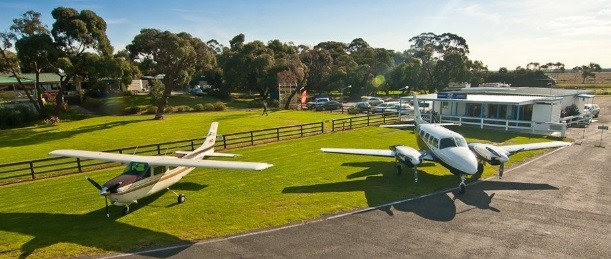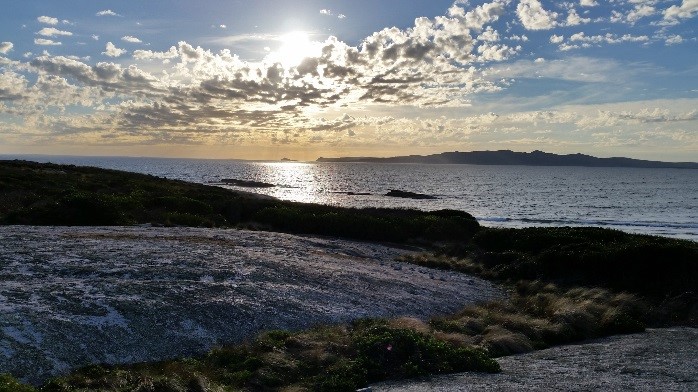West Tamar Council and Flinders Council - Resource Sharing
Tasmania has one of the most dispersed population of all Australian states and territories. To repair roads, investigate complaints, or just to give information to people face to face – all require that a council office or depot be located within a practical travel distance. As we progressed from the horse and cart to cars and highways, travel distances have shrunk. With the internet, the possibilities to overcome distance and to work together have increased again - as this story from West Tamar and Flinders Councils show.
While Tasmania is a somewhat isolated regional economy with challenges - spare a thought for our Island’s islands and their communities. Flinders Council faces plenty of challenges, due to isolation and size.
To get to Flinders Island requires a 200km plus trip from the Tasmanian mainland, via sea or air.

Figure 1: The airport on Flinders run by the council.
Flinders Island is part of the Furneaux Group, which has about 900 residents and 28 full time equivalent council staff. It has been estimated that a council needs about 100 different types of professions, trades and vocations to fulfill their role in the community. Small councils can find it impossible to hire staff to cover all the skills they may need in a year.
Like many councils, Flinders Council had been outsourcing specialist job roles like town planning, building and plumbing inspection to private businesses and other councils for several years. However, sourcing services from multiple providers was becoming difficult and inefficient to manage. During discussions among northern councils, West Tamar Council offered to assist Flinders Council with a variety of development services.
The West Tamar Council’s Development Services Team travelled to Flinders Island to meet council staff and residents, and came up with a plan for resource sharing. West Tamar Council would provide planning, building and plumbing services to Flinders Council for a 12 months trial. Applications for development on Flinders were sent to West Tamar staff to provide important town planning reports and recommendations for Councillors on Flinders to consider and make decisions. The trial was a great success, improving the financial position for both communities. Flinders appointed West Tamar as their Permit Authority, meaning West Tamar Council would also issue all permits for building and plumbing, directly from West Tamar Council Offices.
Sharing resources with Flinders has brought opportunity and skills to West Tamar Council staff which they can incorporate in their day to day work at West Tamar Council. Rolph Vos the General Manager of West Tamar Council said,
“We are thrilled with the success of this arrangement as it has provided consistent, professional services to Flinders Council, and is beneficial to our staff. For the Development Services team, it means a greater utilisation of their skills, providing additional interest, motivation and experiences …”
West Tamar Town Planner James Ireland, said of the arrangement with Flinders,
“I get the benefit of working for two very different councils, whilst only really working for one. Despite being a much smaller council, Flinders has some major, forward-thinking proposals, such as a wind turbine and an eco-tourism development. And there’s no shortage of passion for the island amongst its residents.”

Figure 2: Marshall Bay on beautiful Flinders Island
Flinders Island is a beautiful place – as the image shows - and it is not surprising that it is attracting some larger scale development and tourism projects. West Tamar Council’s Development Services Department also have been rather busy - with resource sharing arrangements now place with George Town Council and Dorset Council as well. The resource sharing arrangement between Flinders and West Tamar is a good example of how councils are stretching their resources further, keeping up with growing and changing legal requirements for development; while still ensuring locally elected community representatives make good decisions on proposed developments.

